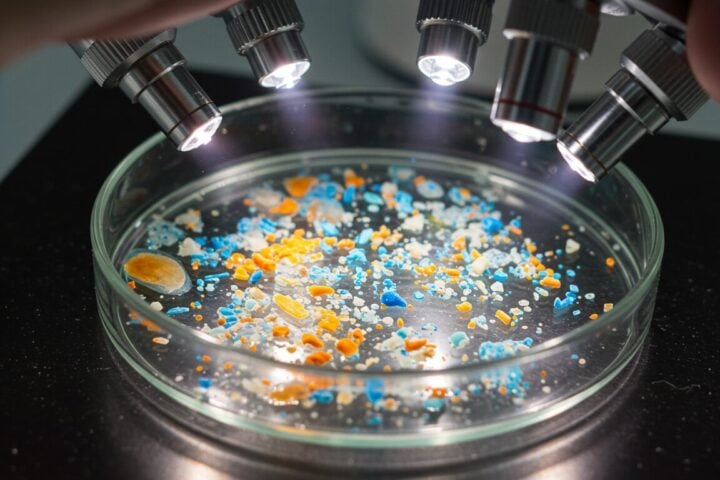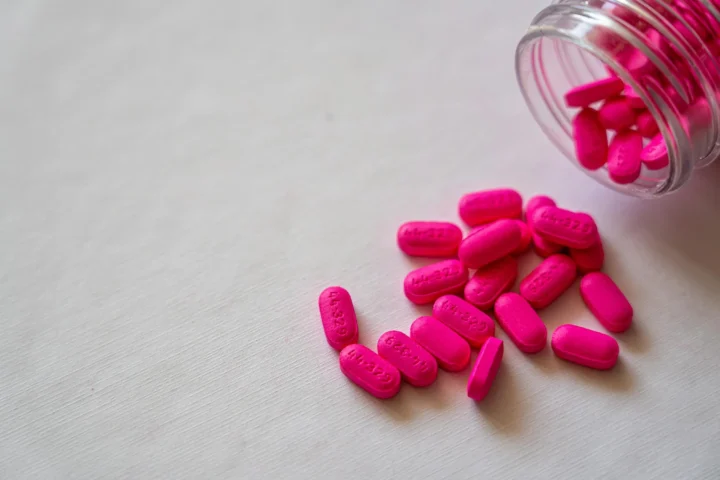A single injection of an experimental drug developed by Eli Lilly has reduced levels of a dangerous form of cholesterol by up to 94% in clinical trials, offering new hope for millions with a genetic predisposition to heart disease.
The drug, called lepodisiran, targets lipoprotein(a) – or Lp(a) – a type of cholesterol that remains undetected in routine tests and doesn’t respond to diet, exercise, or existing medications.
“It’s remarkable,” said Dr. Eric Brandt, director of preventive cardiology at the University of Michigan Health Frankel Cardiovascular Center, who wasn’t involved with the research. “These drugs have the potential to nearly eliminate that lipoprotein.”
A Hidden Risk Factor
An estimated 64 million Americans have elevated levels of Lp(a), putting them at significantly higher risk for heart attacks, strokes, and early death from cardiovascular problems.
“This is a major source of cardiovascular morbidity and mortality,” said Dr. Steven Nissen, chief academic officer of the Heart, Vascular & Thoracic Institute at the Cleveland Clinic and lead researcher of the lepodisiran trial. “We have never been able to treat lipoprotein(a) until now,” he said.
Lp(a) is particularly dangerous because it operates through three different mechanisms:
- It sticks to LDL (the “bad” cholesterol), making it more likely to clog arteries
- It causes inflammation in blood vessels
- It increases the risk of blood clot formation
Unlike other cholesterol measures, Lp(a) levels are primarily determined by genetics rather than lifestyle. Standard cholesterol tests don’t measure Lp(a), and a specific test must be requested by doctors.
How the Drug Works
Lepodisiran works by targeting messenger RNA (mRNA) – the instructions that tell the body to make Lp(a). By essentially “shooting the messenger,” the drug dramatically reduces the production of this dangerous particle.
The Phase 2 clinical trial, funded by Lilly, included 320 participants. Results showed one injection cut Lp(a) levels by 93.9% after six months. After a year, levels remained 88.5% lower than baseline. Participants who received a second 400mg dose at six months showed a 94.8% reduction at the one-year mark.
The findings were presented at the annual meeting of the American College of Cardiology in Chicago and published in The New England Journal of Medicine.
Similar Posts
A Patient’s Perspective
Donald Kosec of Stow, Ohio, experienced firsthand the dangerous effects of high Lp(a). Despite exercising regularly, maintaining a healthy weight, and having normal cholesterol and blood pressure levels, he went to his doctor at age 53 after feeling short of breath and discovered all of his major arteries were blocked, requiring quintuple bypass surgery.
“Going from not having a care in the world to all of a sudden facing your own death, your own mortality,” Kosec said. “It caught me off guard, big time.”
Looking Ahead
While the Lp(a) reductions achieved with lepodisiran are unprecedented, questions remain about whether this will translate into fewer heart attacks and strokes. Lilly is conducting a large clinical trial that will conclude in 2029 to determine if the drug actually prevents cardiovascular events.
Dr. Martha Gulati, a preventive cardiologist at Cedars-Sinai Medical Center not involved in the trial, called the study “really elegant.”
Dr. Daniel Rader, a preventive cardiologist at the University of Pennsylvania’s Perelman School of Medicine, described Lp(a)-lowering as “a huge new frontier in cardiovascular medicine.”

The race to treat high Lp(a) is competitive. At least four other companies – including Novartis, Amgen, Silence Therapeutics, and Merck – are developing similar drugs. Lilly is also testing muvalaplin, the only oral treatment for Lp(a) in clinical trials. Novartis expects results from its clinical trial by 2026.
Cardiologists recommend that all adults should be tested for Lp(a) levels. Since these levels are genetically determined, the test needs to be done only once. Currently, only about 0.3% of Americans have been tested for this potentially deadly risk factor.
For the millions of people with genetically high Lp(a) levels, these emerging treatments may eventually provide protection against a risk factor that has, until now, been impossible to treat.
Frequently Asked Questions
Lp(a) or Lipoprotein(a) is a type of cholesterol that remains undetected in routine tests and doesn’t respond to diet, exercise, or existing medications. It’s primarily determined by genetics and can significantly increase your risk for heart attacks, strokes, and early death from cardiovascular problems. An estimated 64 million Americans have elevated levels of Lp(a), making it a major hidden risk factor for heart disease.
Standard cholesterol tests don’t measure Lp(a). You need to specifically request an Lp(a) test from your doctor. Cardiologists recommend that all adults should be tested for Lp(a) levels at least once in their lifetime, as these levels are genetically determined and remain relatively stable. Currently, only about 0.3% of Americans have been tested for this potentially deadly risk factor.
Lepodisiran is an experimental drug developed by Eli Lilly that targets messenger RNA (mRNA) – the instructions that tell the body to make Lp(a). Clinical trials have shown remarkable results, with a single injection reducing Lp(a) levels by up to 94% after six months. This is unprecedented, as no previous treatments have been effective at lowering Lp(a) levels. The drug is still in clinical trials and not yet approved for general use.
While the initial results are promising, Lilly is conducting a large clinical trial that will conclude in 2029 to determine if the drug actually prevents cardiovascular events. Several other companies – including Novartis, Amgen, Silence Therapeutics, and Merck – are also developing similar drugs. Novartis expects results from its clinical trial by 2026. It may be several years before these treatments become widely available, pending successful trial outcomes and regulatory approval.
Unlike other cholesterol measures, Lp(a) levels are primarily determined by genetics rather than lifestyle. Traditional methods to lower cholesterol, such as diet, exercise, or existing medications, don’t significantly impact Lp(a) levels. This is why the development of drugs specifically targeting Lp(a) is considered a major breakthrough in cardiovascular medicine.
Yes, cardiologists recommend that all adults should be tested for Lp(a) levels at least once, regardless of family history. High Lp(a) can cause heart disease even in people who otherwise appear healthy, as illustrated by patient Donald Kosec in the article, who had normal cholesterol and blood pressure levels but still required quintuple bypass surgery due to high Lp(a). Since Lp(a) is genetically determined, knowing your levels can help inform your long-term cardiovascular risk management.


















